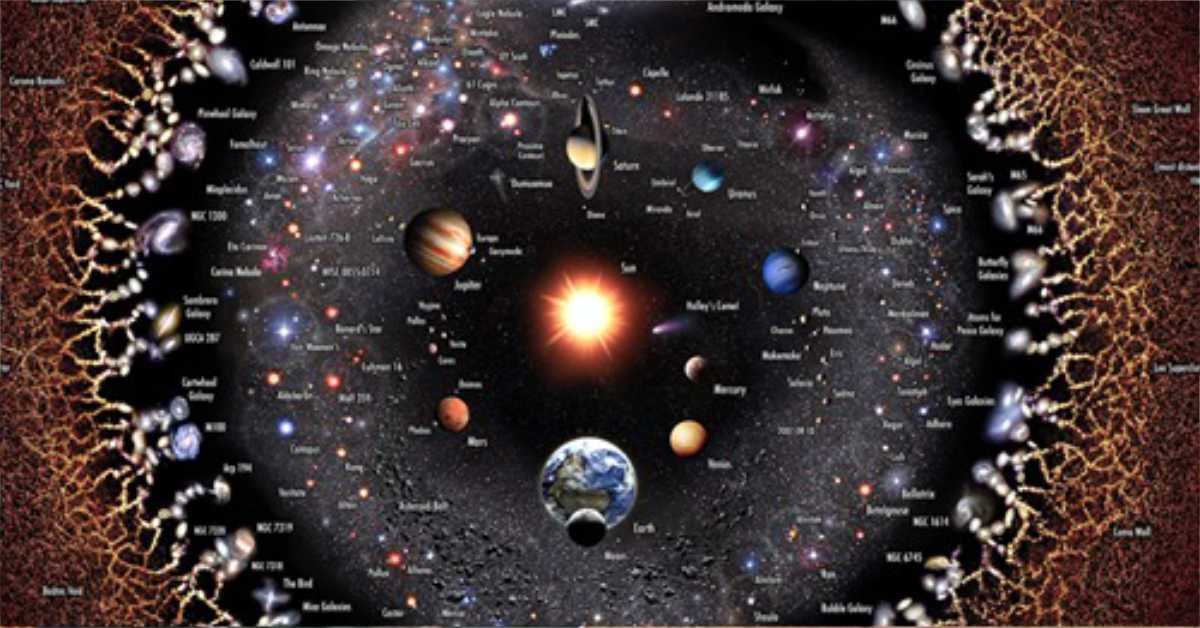Did you know that our universe actually has five life cycles? What’s more, we are currently only in the second one. In the year 2000, Fred Adams and Greg Laughlin wrote a book telling everything that we know so far about the universe’s lifecycle. (1)
The Universe’s Five Lifecycles
The universe is not a stagnant thing. It is constantly changing and evolving. This will, eventually, affect our own planet, too. Before you are too concerned, the universe’s lifecycle that we are currently in is only the second of five. Though you can read about them more thoroughly in Adams’ and Laughlin’s book The Five Ages of The Universe: Inside The Physics Of Eternity, I will lay them out briefly for you here.
Cycle 1: The Primordial Era
This is the very beginning of Earth and our universe when scientists theorize that “The Big Bang” happened. Though things started cooling off almost immediately after the bang happened, it took about 380,000 years for it to cool off enough for the first stable atoms to begin forming. This is also the era when the stars formed. (1)
Cycle 2: The Stelliferous Era
This is also known as the age of stars. In this era, the universe took the form of galaxies and stars. According to the authors, it has been a very active part of our universe’s history and is the cycle we are in right now. During this cycle, scientists predict that eventually, our galaxy, the Milky Way, will crash into the Andromeda galaxy. This merger they believe will happen in about 4 billion years. (1)
Though scientists are reasonably certain that our universe will survive this collision, in another billion years, our sun will begin running out of hydrogen. This will kick-start its red giant phase, which will effectively mean the end of our planet and many planets around it. After the sun’s red giant phase is over, it will shrink down into a white dwarf star. (1)
Cycle 3: The Degenerate Era
In this phase, the remains of most of the stars you look up at each night will be the primary thing that exists. This means that the sky would be much darker than the one that exists today. The Earth, of course, will already be long gone by this time. Not only will the universe be darker, but it will also be much colder without the heat of all of the bright stars of the second phase. (1) Eventually, the protons that formed the Earth will begin dying off, which will render the universe completely unrecognizable. (1)
Cycle 4: The Black Hole Era
With all of the protons gone, black holes will form and dominate our universe. They will suck in any energy that remains floating around outer space. Slowly, however, these black holes will evaporate. While they disappear, they will simultaneously leak out some of their contents. Once one has fully evaporated (which will take an unfathomable amount of time to happen), it will let out a small bit of light as it releases the last bit of energy that it has. This is effectively the end of our universe. (1)
Cycle 5: The Dark Era
This era of the universe’s lifecycle doesn’t need much explaining: It will be completely dark, with no stars, no planets, no nothing. As far as scientists are aware, this will go on indefinitely. (1)
Not Everyone Agrees
All of this is what these two authors theorize has happened, is happening, and will happen to our universe. There are other astronomers and scientists, however, who disagree. (2) At the end of it all, we truly don’t know for sure how our universe formed, how many cycles it has, and how it will eventually come to its end. All we can do for now is keep staring up at the stars and wonder.
Keep Reading: Do These 18 Examples Of The Mandela Effect Prove That We’re Living In A Parallel Universe?
- “There are 5 eras in the universe’s lifecycle. Right now, we’re in the second era.” Big Think. 27 March, 2020
- “We Have Already Entered The Sixth And Final Era Of Our Universe.” Forbes. Ethan Siegel. July 26, 2019.

